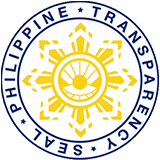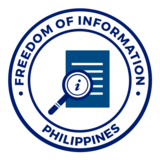
Making e-Learning Possible in Last Mile Schools in the Country
The innovation that DepEd Sarangani developed during the pandemic will soon be replicated in schools around the country, thus, bringing e-learning within the reach of more learners nationwide.
Coming from a place that actually lacks in the information technology department, LRonWHEeLS proves that scarcity, indeed, is the mother of invention, and having been developed during the pandemic when learning delivery was greatly challenged, it affirms that difficult times inspire people to make a difference.
An alternative to printed modules
When President Rodrigo Duterte ordered a national lockdown to take effect on March 15, 2022, everything changed. It compelled the Department of Education to lay down plans for distance learning. However, infrastructure for online learning in the majority of public schools, printed modular distance learning was the go-to modality.
Thinking of ways to help teachers in the delivery of modules to their learners, Information Technology Officer Roy J. Detoyato came up with an idea.
“When I learned that the self-learning modules have digital copies, I developed a system that will allow teachers and learners to download these modules into their gadgets wirelessly,” he said.
In his imagination, his contraption would be going around schools and communities in the province, including those in far-flung areas.
In the beginning, the project began as an alternative to printed modules. Its main purpose was to simplify the process of distributing modules, consequently reducing the cost of reproduction and delivery.
 |
| Users can access interactive learning materials using their gadgets that are connected to the LRonWHEeLS wifi network. |
No internet, no problem
“The lack of internet connection would not be a problem because users can connect to the server through the access point antennas that we set up. This does not require an internet connection because all that they need to download is saved in the storage device of the server,” he added.
He spent time tinkering with his knowledge of computer networking and antennas he bought himself. Working day and night on his project, he realized that instead of just letting users download the learning materials, he considered setting up a learning management system, where learners may also access multimedia materials like audio recordings and video lessons, play with interactive materials, take quizzes, and communicate with their teachers.
From simply being an alternative to printed modules, it has become an opportunity for learners in geographically isolated and disadvantaged areas to experience online learning. Hence, the name of the project – Learning Resources on WiFi Hub for Expanded e-Learning in Sarangani.
Replicable technology
The infrastructure of the LRonWHEeLS is quite simple. That is why it could easily be replicated even in the remotest schools in the province.
With the DepEd Computerization Program in place, schools could easily meet the basic requirements for the installation of LRonWHEeLS, which include a personal computer to be used as a server, a wifi router, and tablet computers that were distributed to schools nationwide. The additional equipment needed would be outdoor antennas to extend the network to cover a larger area.
Most schools in the province are located within small communities in far-flung areas. A small antenna would usually suffice. In larger communities, a network of antennas could be established.
During installation, the LRonWHEeLS team also provides training to teachers on the learning management system as well as on the development of interactive materials. Thus, it gives teachers an opportunity for upskilling, especially on digital literacy. Moreover, it allows them to modify lesson content to better suit the learning needs, abilities, and socio-cultural background of their learners.
 |
| A mother assists her daughter in using her tablet at Niyas Mental IP School. |
Iterative development process
From its humble beginnings, LRonWHEeLS went through several iterations, resulting in a better version every time. The ICTS-EdTech Unit of DepEd Central Office has provided our content developers with skills in using open education resources in creating interactive learning activities.
Trainers from the Bureau of Curriculum Development and Bureau of Learning Resources have also provided input to our content writers and learning resource evaluators to make sure that the content of LRonWHEeLS meets the standards set by the department.
“We organized three teams when it comes to developing the content for the LRonWHEeLS,” Curriculum Implementation Division Chief Donna S. Panes said.
“First are the content writers who organize various resources and write lessons and activities that are aligned with the most essential learning competencies. Second, we have content developers who translate these lessons into digital interactive activities for the learning management system. Finally, we identified learning resource evaluators who are keen on ensuring that the content is free of errors and is designed to be effective and engaging for our learners,” she added.
Going beyond Sarangani
When the concept of LRonWHEeLS was presented during the National Kick-Off of the School Year 2020-2021 as part of the basic education learning continuity program of the Schools Division of Saragani, it caught the attention of the Sec. Leonor Magtolis-Briones.
Not long after, personnel from the Program Management Service of DepEd Central contacted us for a meeting. Soon after that, we were talking with representatives from the Asian Development Bank. We learned that they wanted to replicate the LR on WHEeLS technology in select schools in the country through a project called EdTech Solutions for Last-Mile Schools in COVID-19, which is co-financed by the Japan Fund for Poverty Reduction.
Earlier this year, the equipment for said project had been handed over to recipient schools in Kalinga, Bohol, and Zamboanga Sibugay.
“One thing that I made clear with Roy, in the conceptualization and inception of the project, sabi ko, huwag nating ipagdamot ito. This is our contribution to the delivery of education during the pandemic,” Schools Division Superintendent Gildo G. Mosqueda said.
 |
| Education Program Supervisor Judith Alba trains teachers from recipient schools in Batangas on the management of LRonWHEeLS implementation. |
Classroom of the future
The Education Technology Unit of the Information and Communications Technology Service (ICTS-EdTech Unit) of DepEd has been working towards upgrading the quality of education in the country through its Digital Rise program, an educational framework that anchors to the infrastructure, software, and capacity building of learners and teachers in technology.
The direction that DepEd has been gearing towards is technology-assisted education. The DepEd Computerization Program has even shifted from personal computers that are stuck in a fixed computer laboratory into tablet PCs that can be moved from one classroom to another and are connected to a router, making the computer laboratory more accessible to teachers and learners.
When the ICTS-EdTech Unit visited the Sarangani in December 2021, they were amazed because DepEd Sarangani was able to give learners access to DepEd TV episodes through the LR on WHEeLS.
“When we visited the schools, napaluha talaga ako. The wisdom of DepEdTV is to reach the unreachable…Sino ang mag-aakala na [ang isang lugar] na walang signal ay maaabot ng DepEd TV?,” Mark Anthony Sy, Head of ICTS-EdTech said.
 |
| Roy Detoyato demonstrates to personnel from the ICTS-EdTech Unit the process of server configuration during their visit to Datal Basak IP School. |
A better normal
The implementation of LRonWHEeLS is also seen to upgrade the skills of the teachers. With better equipped teachers, we could expect a significant improvement in the delivery of learning. Teachers who are using LRonWHEeLS could be expected to have a deeper appreciation of the role of technology in their classrooms.
The National Educators Academy of the Philippines (NEAP) has also embraced LRonWHEeLS. The team from DepEd Sarangani installed LRonWHEeLS at the NEAP site inside the Teachers Camp in Baguio City. Their staff have also been trained on server and antenna configuration and management.
 |
| Roy Detoyato demonstrates server and antenna configuration to NEAP personnel in Baguio City. |
With the LRonWHEeLS installed at NEAP, teacher training would involve accessing learning materials and activities through the network, providing them with hands-on experience in technology-aided learning.
While LRonWHEeLS was created during the COVID-19 pandemic, its impact and usefulness extends beyond it. When face-to-face classes return, LRonWHEeLS implementation would continue to improve the quality of education in the country, paving the way for a better normal for our schools.




